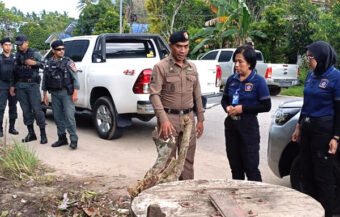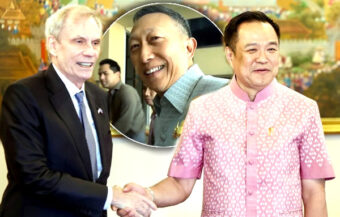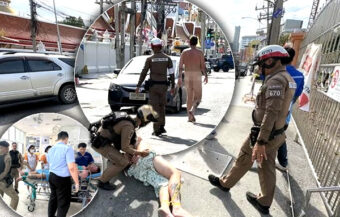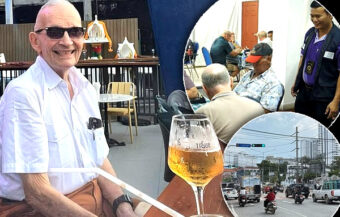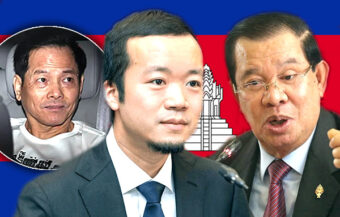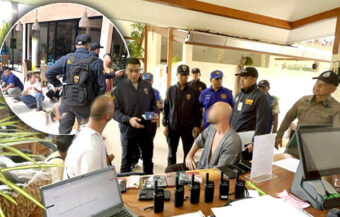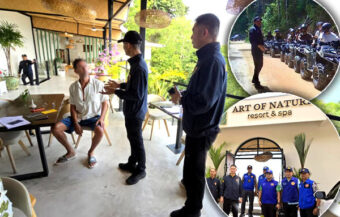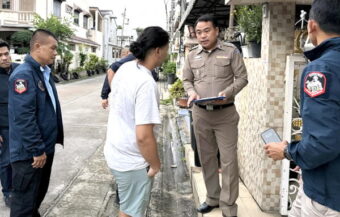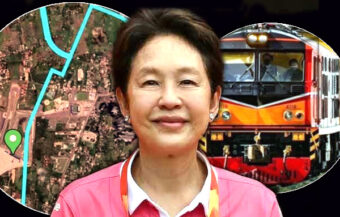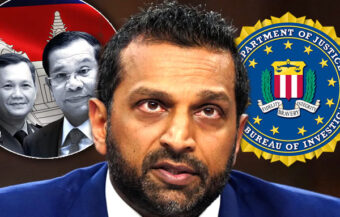Thai cabinet split on casino bill as Bhumjaithai Party resists. Finance Minister Julapun Amornvivat says the plan could boost the economy and tourism, but Deputy PM Anutin Charnvirakul voices concerns, pointing to gambling issues and uncertain benefits for Thai workers.
Deputy Minister of Finance Julapun Amornvivat outlined his plans for a casino bill to be sent to the cabinet before the year’s end. This was on Thursday morning. He outlined key details to be discussed with the Entertainment Complex Act. However, within hours, his plans were rebuffed by Deputy Prime Minister Anutin Charnvirakul in Phnom Penh. The Minister of the Interior first stated that any casino bill must be extensively reviewed by the cabinet. Subsequently, he referred reporters to questions raised by the Bhumjaithai Party Secretary-General and Buriram MP Chaichanok Chidchob.
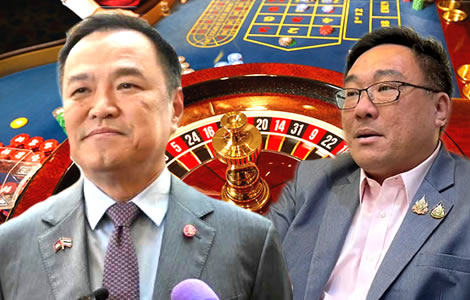
There are already clear indications that the proposed new Casino Act will become another political time bomb, certainly, another device placed under an already divided Thai cabinet.
On Thursday, Deputy Minister of Finance Julapun Amornvivat came forward with news that a draft casino bill would be placed before the cabinet at the end of the year.
Indeed, Minister Julapun Amornvivat appears to suggest a sense of urgency about the measure. He described it as one that will directly boost the economy.
Deputy Prime Minister’s caution raises questions on proposed casino bill amid political uncertainty
However, hours later, Deputy Prime Minister Anutin Charnvirakul, the Minister of the Interior, responded. He was in Phnom Penh, Cambodia and appeared to express caution.
Certainly, he poured cold water on the plan. Previously, a member of the powerful Chidchob family within Mr. Anutin’s Bhumjaithai Party has expressed doubt.
Indeed he has come out as particularly opposed to this measure.
Mr. Chaichanok Chidchob is the Bhumjaithai Party MP for Buriram, and in addition, party secretary. Formerly he outlined four key questions relating to the proposal.
Certainly, Thai society has traditionally viewed gambling as a dangerous vice. In truth, with good reason. Thai nationals appear to have a propensity to take reckless risks when confronted with an opportunity.
Previously, gambling was legal in the kingdom before being outlawed. Afterwards, a pilot project in Prachuap Khiri Khan in the 1930s had to be cancelled because of the ill effects of the policy.
Concerns over gambling’s impact on Thai society and the ineffectiveness of casinos as a solution
Mr. Chaichanok points out that legalising casinos in expensive entertainment complexes will not solve Thailand’s already chronic gambling problem.
The Royal Thai Police regularly point to crime created by illegal gambling, both online and offline.
For instance, last year, now dismissed National Police Chief General Surachate Hakparn blamed an illegal gambling addiction for Thailand’s worst mass murder spree.
Minister outlines plans for Casinos, Disneyland and a tax support system for workers to Parliament
Biggest criminal case in Thai history to be finalised, on Friday, against suspected serial killer Am Cyanide
At length, the accused, Am Cyanide, was accused of murdering 15 people using cyanide. In short, the motive was to pay up to ฿78 million in gambling losses.
Certainly, investigating police were horrified at the money which was channelled through the killer’s bank accounts and lost.
In effect, it was thought she was murdering to pay her gambling debts.
Secondly, Mr. Chaichanok has asked about the licensing of such establishments. He has demanded clarity on how the Thai people will benefit.
Certainly, Mr. Julapun’s announcement on Thursday addressed that issue. However, it is not clear how viable the minister’s plans are.
Thirdly, the Buriram MP has questioned if the licensing of legal casinos will help boost tourism. For instance, casinos in Cambodia, Myanmar, and Laos have undeniably become associated with criminal activities.
Certainly, this is a consideration. Casinos may have a negative impact on the perception of Thailand among the broader foreign tourism market.
Minister Julapun Amornvivat presents positive findings to counter scepticism surrounding the proposal
Undoubtedly, Minister Julapun Amornvivat sees the situation differently.
Coincidentally, on Thursday, he produced the results of a Fiscal Policy Office study to support his proposal.
Fourthly, the Bhumjaithai Party Secretary-General questions whether the proposed casino industry will benefit Thai workers. In particular, he wishes to see strong employment protections if the scheme does go ahead.
Mr. Anutin indirectly referred to his party Secretary-general’s position on Thursday. At the same time, he insisted that the plan must be robustly discussed at cabinet.
Certainly, he was not prepared to give the green light to it at this time.
On Thursday morning, Minister Julapun Amornvivat first emphasised that in a survey on the proposed law, the Entertainment Complex Act, 82% of those polled supported the government’s move.
Furthermore, he noted that the Fiscal Policy Office study suggested that foreign tourism numbers to Thailand could be boosted. In brief, by 5-20% per year due to the new attractions. At length, these would be massive man-made tourism venues with a casino at their heart.
Proposed casino law aims to significantly increase foreign tourism spending and create job opportunities
At the same time, the Fiscal Policy Office suggests that the new law could help raise foreign tourism spending. The minister appeared to suggest that presently that was only ฿40,000 per head.
In brief, approximately 20% down on the figure active in 2019.
He explained that the Fiscal Policy Office study suggested this would rise to ฿60,000 as a result of the casino legislation.
In addition, he gave more details on the law. Notably, Thai nationals would not be prohibited from entering the new casinos. However, the fee per visit for all casino users would be ฿5,000.
At length, this would be stipulated by law. Significantly, it would not be left to the management of the casino complexes.
Those applying for concessions to develop such tourist attractions would be required to pay an upfront licence fee of ฿5 billion. This would be for a 10-year period, renewable every 10 years for up to 30 years. However, an annual licence fee of ฿1 billion would apply as an additional payment.
At length, Minister Julapun suggests that proposals would be invited from interested private concerns.
Of course, this would be after the law is passed. The minister in particular highlighted that these developments would create jobs for Thai nationals.
Certainly, they would require training as the standards at such facilities would be extremely high.
“I hope as many Thais as possible will be employed in the entertainment complexes, which may require training to ensure they have the necessary skills,” he said.
Join the Thai News forum, follow Thai Examiner on Facebook here
Receive all our stories as they come out on Telegram here
Follow Thai Examiner here
Further reading:
Minister outlines plans for Casinos, Disneyland and a tax support system for workers to Parliament
Legal casinos and gambling in Thailand being weighed up carefully after Deputy PM’s backing
Top Royal Thai Police officers under scrutiny over links to huge illegal online gambling cash flows
Unlikely rags to riches convict star arrested again in Thailand over online gambling promotion
PM plays clips to parliament to defend himself against media ‘distortion’ of gambling claims
Rayong gambling boss is arrested as fact-finding panel finds police and officials acted corruptly
Gamblers and hosts at illegal gambling dens are being jailed as massive crackdown proceeds apace
World cup brought home Thailand’s chronic gambling issue
Activist: more gambling dens in Rayong, 45-year-old security man tested on Sunday dies on Monday

